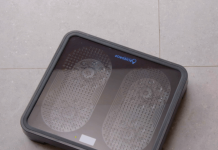Patient engagement platform Ostro scooped up $45 million, and Cloud Health Systems, a new startup from Instacart cofounder Apoorva Mehta, reportedly raised $30 million.
Tech-enabled contract research organization Vial announced last week it raised $67 million in Series B funding.
The round, which the startup said brings its total raise to more than $100 million, was led by General Catalyst with participation from Byers Capital, BoxGroup and other investors.
Vial offers three technology platforms for running clinical trials: one for onboarding patients and launching the study, another for capturing data and outcomes, and a third geared toward recruiting trial participants.
“We are proud of what Vial is building — a global, full-service CRO powered by intuitive end-to-end technology aimed at meeting the needs of biotech. Vial is the CRO sponsors can trust to be a true partner and deliver for their clinical trials. The fundraise is the latest and exciting step towards executing on our mission of reimagining clinical trials,” Simon Burns, CEO and cofounder of Vial, said in a statement.
RELATED: Vaxxas Raises US$23 million (A$34 million) to Clinically Advance Needle-Free Vaccines
Ostro, a patient engagement platform formerly known as RxDefine, recently scooped up $45 million in funding.
The raise came from Founders Fund, Byers Capital, Caffeinated Capital, Greycroft, Bling Capital, Trust Ventures and RRE Ventures, and brought the startup’s total funding pot to more than $55 million.
Ostro offers tools to explain medical products and drugs to patients, marketing analytics software and telehealth technology. The company said the name change reflects its move from a pharmaceutical focus to one that could be used with medical devices, digital therapeutics and diagnostics.
Cloud Health Systems, a new startup from Instacart cofounder Apoorva Mehta, recently raised $30 million, according to reporting by the Wall Street Journal.
The round was led by Thrive Capital with participation from Greenoaks Capital, and it values the startup at $200 million, according to sources consulted by the WSJ.
According to the WSJ, the company will offer consultations and other health services to consumers, first focusing on metabolic health and obesity.
Digital pathology startup PictorLabs launched last week alongside a $15.2 million financing round led by M Ventures, SCC Soft Computer and Koç Holding.
The company said the raise brings its total funding to $18.8 million. It’s developing a virtual staining platform for histopathology, or the microscopic exam of tissue.
“By virtually staining tissue images in the digital realm, our approach simplifies and accelerates workflows, speeding up drug discovery and diagnostic decision-making with the goal of ultimately improving patient outcomes,” Yair Rivenson, PictorLabs CEO and chief technology officer, said in a statement. “With the support of our experienced investors, we’re now well placed to systematically expand our platform.”
Minze Health, a Belgian startup focused on remote monitoring for urinary tract conditions, raised €3.9 million from White Fund, Capricorn Partners and PMV.
The company said it will use the funding to execute its product development roadmap, conduct studies in Europe and the U.S., and focus on international B2B and B2C go-to-market strategies.
“Minze Health’s solutions to often unspoken social problems represent enormous international potential,” Tine Bekaert, senior investment manager at PMV, said in a statement. “We are convinced that thanks to a unique combination of medical devices with low-threshold and comprehensive software diagnostics, patients around the world facing urology problems will find their way to this accessible form of home diagnostics. We therefore fully support Minze Health in this crucial phase of international expansion.”
Hopelab announced Monday it invested $1.5 million in five startups that offer mental healthcare: Brave Health, Caraway Health, InStride, MindRight Health and Violet.
The investor said the funding is focused on improving access to care, particularly for young people of color and LGBTQ+ youth.
“Today’s young people experience compounding stress like never before, and this is where our partnerships can make a real impact,” Erin Sietstra, head of investments at Hopelab, said in a statement. “We’re constantly striving to improve youth mental health and well-being, especially among LGBTQ+ and BIPOC young people, and investing in new digital solutions led by entrepreneurs who personally understand the gaps in healthcare will foster better well-being for this generation and the generations to come.”




